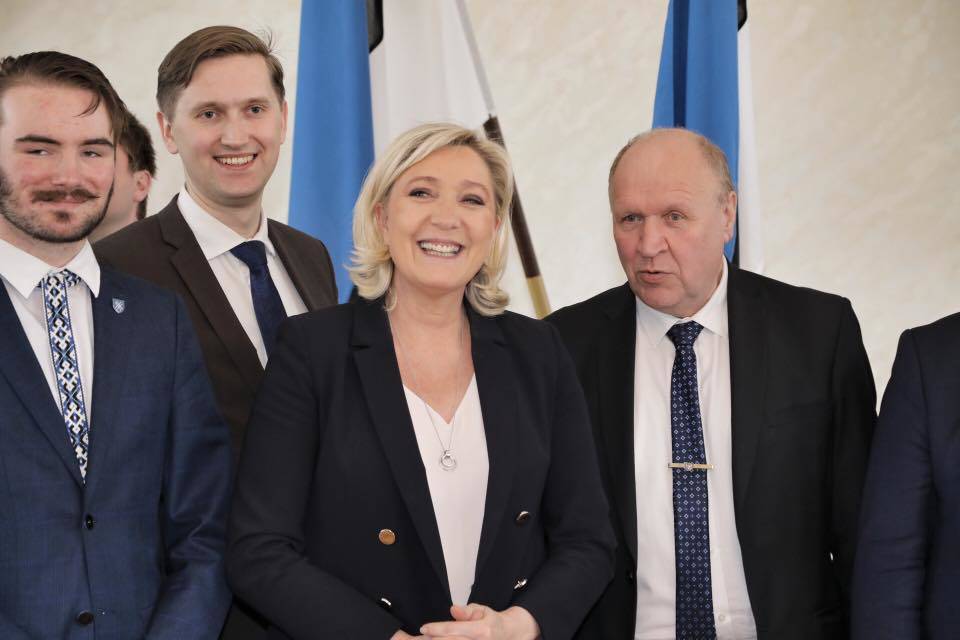During her campaign, Marine Le Pen painted herself as a moderate, and it paid off since polls now show the French far-right leader has never been so close to becoming the next French president; on 24 April, voters will have to decide between her and incumbent Emmanuel Macron. But what are her plans for Europe and what would be the consequences if she gets elected?
The first leg of the French presidential election is now over, with far-right candidate Marine Le Pen (Rassemblement National) and incumbent president and centrist candidate Emmanuel Macron (La République en Marche) making it to the run-off. With 27.8 per cent, Macron recorded a percentage of votes that was clearly up from his first round result of 24.01 per cent.
However, Marine Le Pen, the member of parliament for Pas-de-Calais, also progressed, with 23.15 per cent – a new record for the far-right that beat 2017’s score of 21.3 per cent. While Macron remains the favourite, never has a representative of the far-right held such a mainstream position for the run-off as well as a positive campaign dynamic.
On 5 March, Ipsos-Sopra Steria barometer for Le Monde, a French news outlet, credited her with 14.5 per cent of voting intentions. The same survey showed Macron at 30.5 per cent. The fate of the second round will largely be decided by the leftist’s supporters, particularly Jean-Luc Mélenchon’s voter base, who came in third, at 21.95 per cent.
Le Pen’s pro-Putin stance has not affected her standing
I have no doubt that the idea of France electing someone like Le Pen is hard to believe, especially in the context of Russia’s invasion of Ukraine. Unfortunately, discussions of foreign policy and wider European topics have been scant during the campaign, with Le Pen offering up very little, particularly since the beginning of Russia’s war against Ukraine.
When the war started, she decided to throw away 1.2 million election leaflets, which were about to be distributed, because they included a photo showing her with the Russian president Vladimir Putin, describing her as “a woman of conviction”.
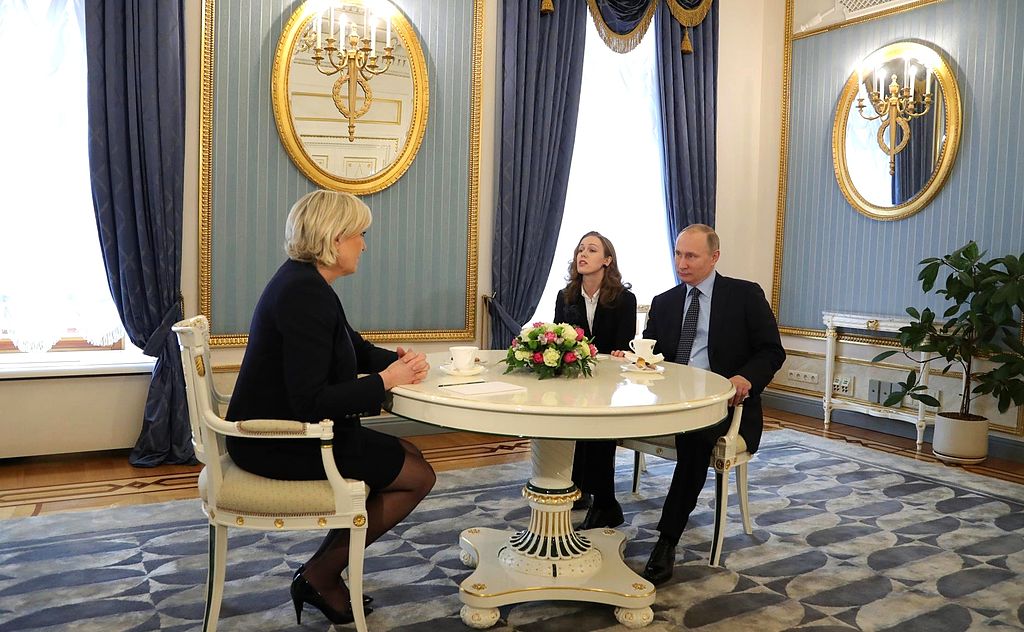
The main topic of the campaign was by far purchasing power and rising costs, which became two pillars of her campaign’s platform. As such, even if support for Ukraine is widespread in France, her pro-Putin stance has not affected her standing, either positively or negatively.
It can be difficult to fully comprehend the implications her victory would have on the EU and European security, which is why I read her official programme and her recent speeches to try to explain it.
In short, even if Le Pen is trying to avoid these topics, her election would undoubtedly bring chaos to Europe.
To imagine the consequences, we’d do well to picture Hungary’s prime minister Viktor Orban leading the European Union’s second biggest economy – a “Viktor Orban” unencumbered by pressure from EU funds as the leader of the second biggest contributor to the EU budget. We are talking about a complete destabilisation of the EU.
Undermining the EU and NATO
La Pen’s manifesto literally calls for the replacement of the European Union with a new “Alliance of European Nations”. Although she often claims she has close ties with the Hungarian and Polish governments, it’s also very likely she won’t manage to convince many other countries to follow suit. But in many ways, her strategy reflects Orban’s steps: officially, she is neither planning to leave the EU, nor the Eurozone, nor NATO. But she wants to undermine these institutions from the inside.
Marine Le Pen has not often addressed EU topics during the campaign, but, when she has, it’s been entirely negative, of course. She accused the EU of being “increasingly more intrusive and authoritarian”, “embedded in techno-liberal impasses” and espousing a “globalist and borderless ideology”. It “weakens our agriculture”, she claims, “destroys our identity” and “imposes its laws over the constitutions of the states”.
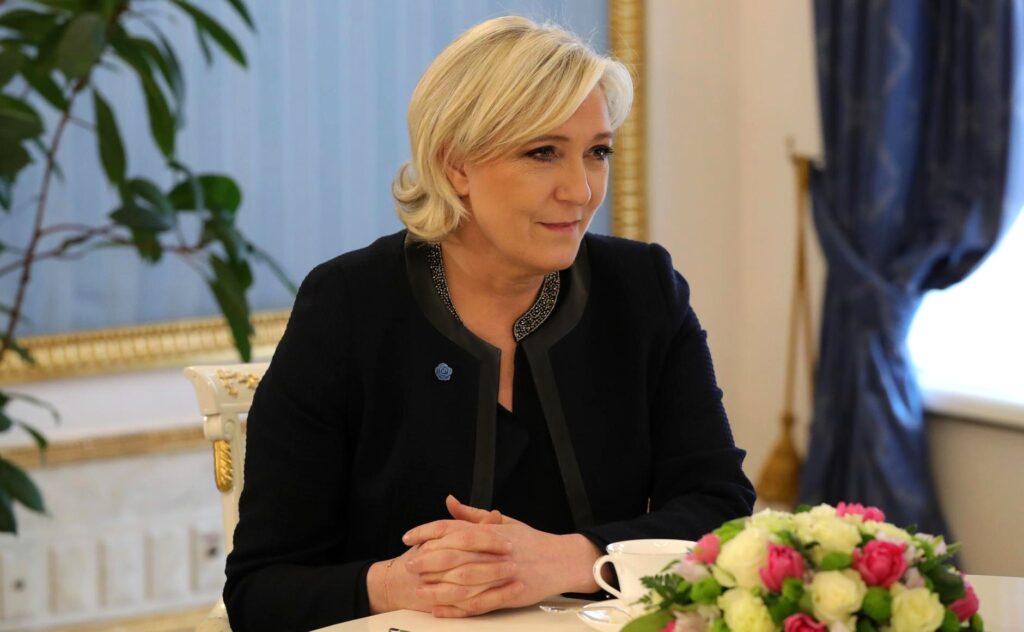
In her programme, she wants to enshrine discriminatory policies that favour French citizens over foreign citizens. This includes EU citizens, and she also wants to restrict their access to social benefits. The EU rules prevent governments from prioritizing their own nationals over other EU citizens. To achieve this unconstitutional violation of EU law, she is planning to organise a referendum affirming the primacy of French law over EU law. European law “would no longer be applied” if the government decided it was contrary to the “sovereign will” of France.
In her manifesto, she also plans to undermine the EU single market and two of the EU’s key principles: the freedom of movement of goods and people. She wants to reintroduce border checks for goods arriving in France, and “renegotiate” Schengen agreements to replace the absence of border checks for citizens with “simplified procedures”.
She also wants to unilaterally reduce France’s contribution to EU budgets, while intending to keep the resources of the EU carbon tax, originally intended to partially finance the large European loan launched in 2021, and cancel some trade agreements. All these actions would come from a founding member of the EU – a country that is the second biggest contributor to the EU budget. Therefore, she would use that as leverage to blackmail other EU members.
If the other member states were to refuse these renegotiations – other Schengen members do not want permanent border controls – she would veto everything (unlike Orban, the EU couldn’t use EU funds as an argument to pressure her). Therefore, even if she no longer officially calls for a “Frexit”, she plans to simply block everything in the EU until she gets what she wants.
What if other EU countries don’t yield? Then, it’s very likely the Frexit option would wind up back on the table.
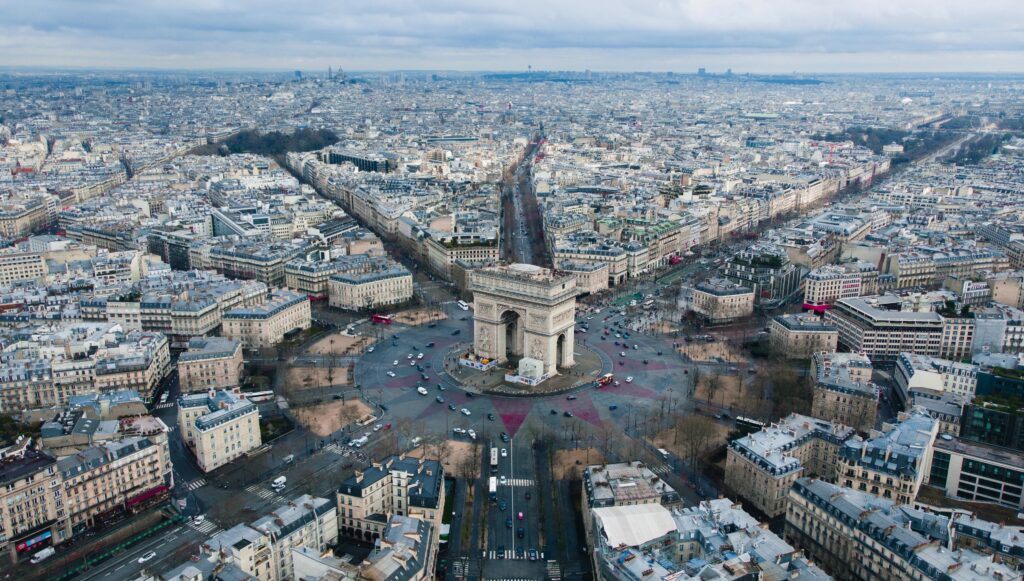
The EU’s climate policy would also suffer, since Le Pen wants France’s emissions reduction strategy to be decided nationally, and on an annual basis, as opposed to the EU’s current system of 10-year energy and climate plans.
Her foreign policy would be a significant departure from the post-Cold War French approach. She wants to “take the initiative to renegotiate with Washington the complete foundations of its partnership in all areas”. She calls for an end to defence industrial co-operation with Germany, and wants to withdraw from NATO’s integrated military structure, which France rejoined in 2009 after a 43-year absence.
Seeking an alliance with Russia
Of course, on Russia, the change would be most significant. She seeks an alliance with Russia on specific topics such as security in Europe, Africa, the Middle East and Asia. During this year’s campaign, she has also said that Putin could become an ally of France if the war ended.
She opposes sanctions that would affect France’s economy, weapons delivery to Ukraine, says only a UN investigation could determine who is responsible for the massacres in Bucha and Mariupol, wants an agreement with Russia to ensure Ukraine will always remain a buffer zone and won’t join either the EU or NATO and called for the recognition of Russia’s annexation of Crimea.
It is an understatement to say she would do her best to block Europe’s support for Ukraine. After all, we are talking about someone who said in 2017, “the policies I represent are the policies represented by Mr Putin”.
This year, her main inspiration seems to be Viktor Orban. Many people know that, in 2017, she received a € nine million loan from a small bank, First Czech Russian Bank, with links to the Kremlin. She will be repaying that debt until 2028, which would certainly pose a national security issue if she gets elected. However, this year, she received a € 10 million loan from a Hungarian bank, MKB, owned by Lőrinc Mészáros, a close friend of Orban, a politician and businessman, whose fortune has relied heavily on state procurement and on EU funds (in 2018, he won public procurements worth HUF 259 billion, 93 percent of which came from the European Union).
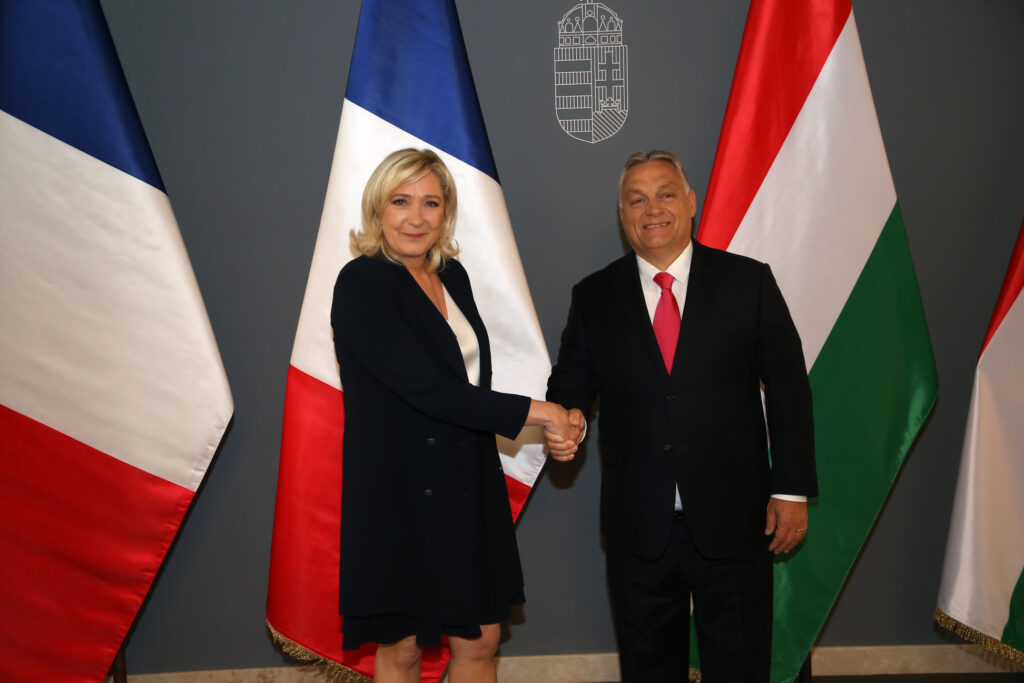
Several French people I spoke with think that, in any case, they can always stop her plans if another party wins the French National Assembly election, due this June. But France is not a parliamentary system. It is a semi-presidential system.
Although the prime minister of France, through their government as well as parliament, oversees much of the nation’s day-to-day domestic affairs, the French president wields significant influence and authority, serves as chief of the armed forces, represents the country at the European Council, and is in charge, among other things, of national security and foreign policy. This is what often allows France to make decisions and move faster than many other countries on these topics. It’s largely been a positive feature of the French system, but could become equally as dangerous, too.
So, with Le Pen’s election, Putin would win an ally, one who helms the second biggest EU economy, and Orban would win a strong partner to undermine the EU from the inside. This is what is currently at stake, the future of Europe and of the EU, and why this French presidential election is undoubtedly more consequential than any other election in Europe.
The opinions in this article are those of the author.

